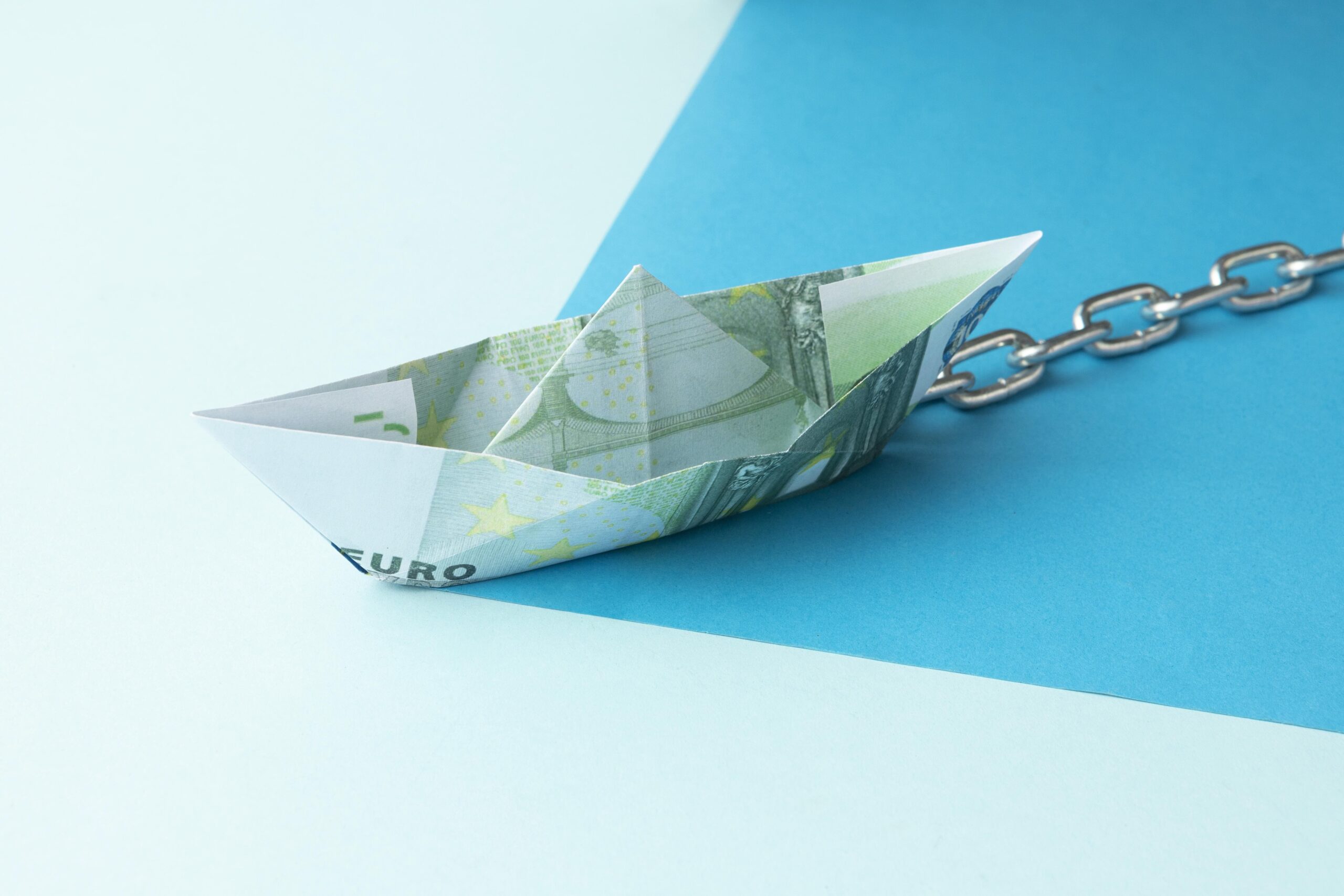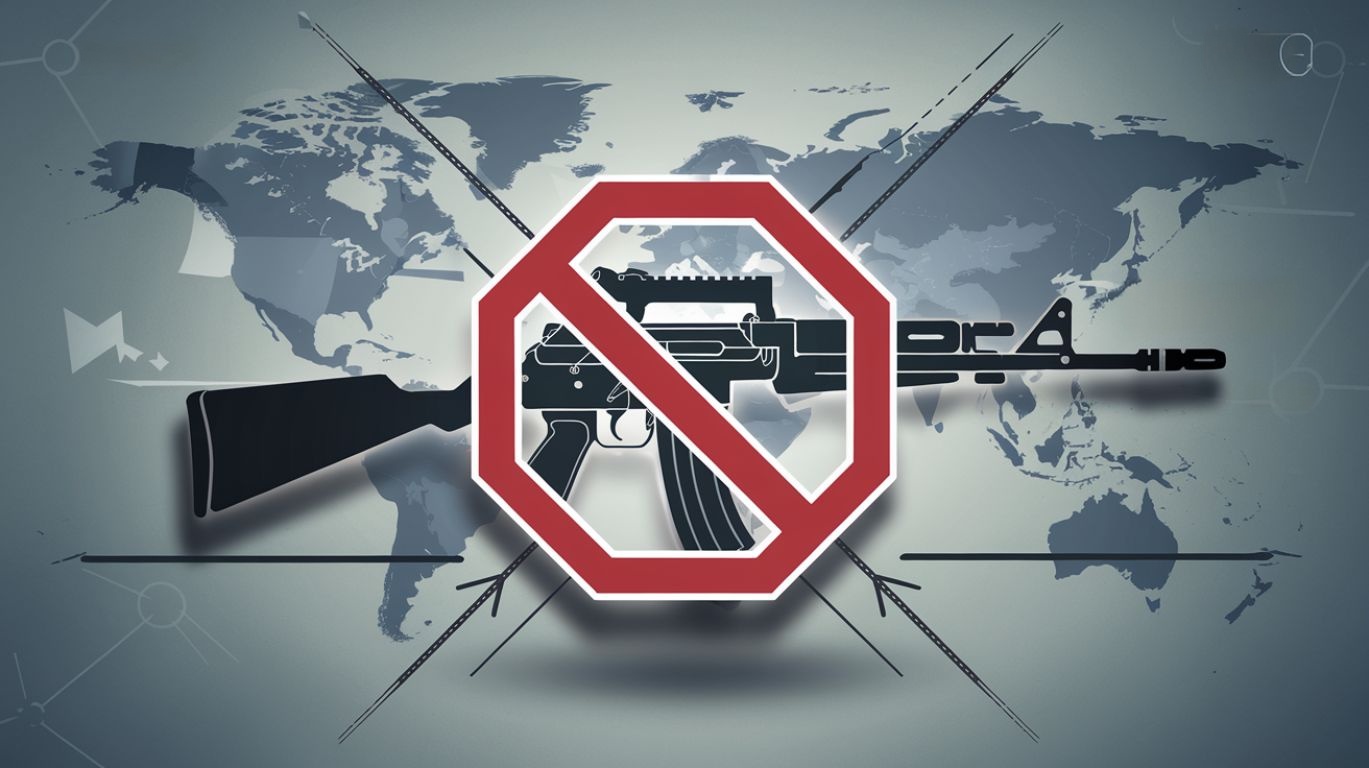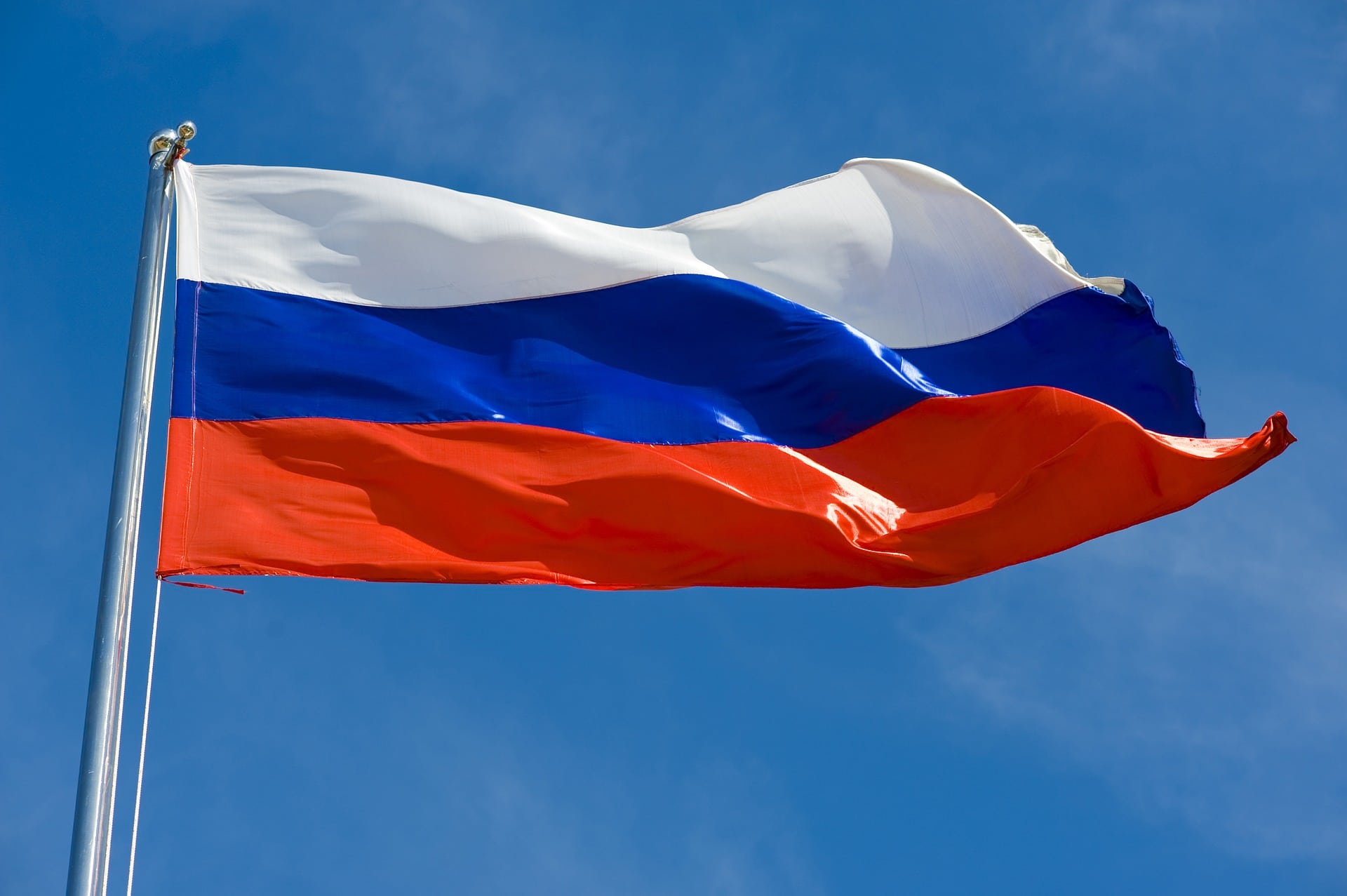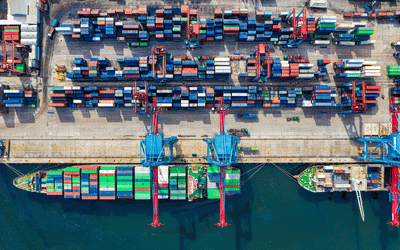An embargo can severely restrict trade relations between countries – for example, in the context of sanctions against companies, organisations and individuals. Whether your imports and exports are affected may depend on the type of goods to be shipped, the parties involved and the destination or country of origin. We explain what embargoes are all about and show you how to navigate embargo regulations in international trade.
What exactly is an embargo?
Definition of embargo
The term ‘embargo’ refers to a seizure in Spanish. In this country, the term primarily refers to government-imposed restrictions and bans on international trade in goods, which are often imposed as part of sanctions. Typical embargo measures include:
- a restriction or ban on the export of goods (to certain countries)
- a restriction or ban on the import of goods (from certain countries)
- a restriction on payment transactions (e.g. for certain persons and institutions)
- a performance ban (contracts may not be fulfilled or newly concluded)
Reasons for and objectives of embargoes
Embargo regulations often aim to change the behaviour of certain states, individuals or organisations that violate bilateral agreements or human rights. For example, the European Union imposes embargoes for foreign policy or security reasons. These are often based on United Nations resolutions. However, embargoes can also be imposed at national level.
Embargoes can be formulated on a country-specific basis, making restrictive trade measures dependent on the target or country of origin. Alternatively, they can be defined independently of specific countries, in which case they usually target a list of organisations, companies and individuals.
What types of embargoes are there?
Embargoes can be categorised in different ways, depending on which areas of foreign trade are subject to measures.
Partial embargoes and total embargoes
If freedom in foreign trade is only partially restricted – for example, by import bans on certain goods – this is referred to as a partial embargo. Particularly comprehensive embargo measures, on the other hand, are also referred to as total embargoes. In such cases, for example, the movement of goods with certain countries is completely prohibited. However, exceptions for humanitarian organisations can be specified within the framework of the embargo regulations.
Embargoes on individuals, countries and goods
Embargos lassen sich außerdem nach ihrem Ziel unterscheiden. Während die länderbezogenen Embargos Beschränkungen und Verbote des Außenwirtschaftsverkehrs gegenüber gesamten Ländern aussprechen, gelten die Maßnahmen bei personenbezogenen Embargos nur für die gelisteten Personen – das heißt für diejenigen Personen und Organisationen, die auf der entsprechenden Sanktionsliste stehen. Warenbezogene Embargos wiederum schränken die Ein- und Ausfuhr bestimmter Wirtschaftsbereiche ein – wie beispielsweise russischer Diamanten.
Embargoes can also be distinguished according to their target. While country-specific embargoes impose restrictions and bans on foreign trade with entire countries, measures imposed by person-specific embargoes only apply to the individuals listed – i.e. those individuals and organisations that appear on the relevant sanctions list. Goods-specific embargoes, on the other hand, restrict the import and export of certain economic sectors – such as Russian diamonds.
Ship, oil and arms embargoes
The term embargo is also often used in connection with certain groups of goods that are subject to licensing requirements and export or import bans. For example, a shipping embargo describes restrictions on maritime trade, and an oil embargo describes restrictive measures relating to crude oil and petroleum products. Of particular importance is the so-called arms embargo, which regulates the trade in military equipment and weapons. One of the objectives of these decisions is often to combat terrorism.
Decision and legal basis for embargoes
Country-specific and country-independent embargo measures may be based, for example, on resolutions of the United Nations (UN) aimed at preventing certain states from acting in violation of international law. The European Union also imposes embargoes in regulations within the framework of the Common Foreign and Security Policy (CFSP) – partly on the basis of UN resolutions and partly on its own initiative. If Germany imposes embargoes, these are laid down in the Foreign Trade and Payments Ordinance (Sections 74 ff. AWV).
If a ban or the enforcement of a specific export control is decided for trade, or if transactions involving financial resources are regulated, the new sanctions will be announced in the Official Journal of the European Union or in the Federal Gazette.
What impact do embargoes have on the import and export of goods?
Companies must strictly observe applicable trade embargoes when engaging in international trade. This includes checking for personal embargoes and country-specific embargoes. The planned transaction must also be checked against the regulations of arms embargoes. Please note: Not only the export of weapons and armaments, but also trade in so-called dual-use goods may be regulated – and thus affect goods that are not primarily military goods but can be misused for military purposes.
Legal security for your company - with SANSCREEN
With SANSCREEN, you can play it safe. Check your business contacts manually or automatically against daily sanctions lists. With detailed and audit-proof logs, you can provide complete proof of your compliance measures if required.
Overview of EU embargoes
These EU country embargoes contain names of individuals, organisations and companies whose assets are to be frozen and/or who are not to be provided with any economic resources:
- Armenia
- Azerbaijan
- Belarus
- Burundi
- China
- Democratic Republic of Congo
- Guinea
- Guinea-Bissau
- Haiti
- Iraq
- Iran
- Yemen
- Lebanon
- Libya
- Mali
- Moldova
- Myanmar
- Nicaragua
- North Korea
- Russia
- Zimbabwe
- Somalia
- Sudan
- South Sudan
- Syria
- Tunisia
- Turkey
- Venezuela
- Central African Republic
The BAFA provides an overview and further information. The Consolidated Financial Sanctions List (CFSP) is also important.
Where can further information be found?
In Germany, embargoes are mainly enforced by the Federal Office of Economics and Export Control (BAFA). The Deutsche Bundesbank is responsible for financial sanctions. Further information is also available from customs authorities.





